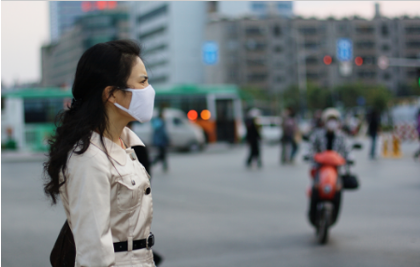Traveling abroad is undoubtedly an enriching experience, but it’s also important to take proper precautions to ensure you don’t fall ill. Even if you take a luxury safari trip or stay in a 5-star hotel, getting sick while traveling abroad can be alarming for many, especially when it seems to come out of nowhere.
Read below for a list of some of the most common illnesses abroad and what you can do if you’re confronted with a dangerous sickness.
Common Illnesses Overseas
Cholera
Cholera occurs primarily in developing countries with inadequate sanitation. It is endemic in Africa and Asia and less so in South and Central America. Some of the symptoms of cholera include diarrhea, fever and vomiting. Make sure to avoid food that is not cooked thoroughly and water that does not come from a bottled source.
Malaria
Malaria is caused by a parasite that is spread by the female Anopheles mosquito. Although there is no licensed vaccine, there are preventative anti-malaria drugs which are highly encouraged among travelers. Symptoms can occur within 10 days of being bitten and include fever, chills, headache, abdominal pain, sweating and nausea.
Tuberculosis
Generally found in Africa, Asia and Eastern Europe, tuberculosis is second only to HIV/AIDs as a single-agent cause of death in the word. It is an airborne disease that spreads from person to person. While it infects the lungs, it is curable with antibiotics.
Typhoid Fever
Typhoid Fever is a life-threatening disease that is spread by contaminated food and water. It’s important to get vaccinated prior to travel but keep in mind, it only protects 50%-80% of patients. If possible, avoid unpeeled fruits and vegetables, street food and drinks with ice.
Hepatitis A
Hepatitis A can be contracted in any part of the world but is more common in developing countries. It is spread through contaminated water and uncooked food. Fortunately, there is a vaccine against this but it’s important to be mindful of your food and drink choices.
If you are diagnosed with Hepatitis A, there is no treatment other than rehydrating your body and supportive treatment— it can take weeks or months to recover. Symptoms include loss of appetite, jaundice, dark colored urine, nausea and abdominal discomfort.
Other Potential Illnesses Include:
- Meningitis
- Japanese Encephalitis
- HIV/AIDs
- Yellow Fever
- Dengue Fever
- Tetanus
How to Prepare Yourself When Traveling Abroad
See Your Health Care Provider or a Travel Medicine Specialist
Visit your doctor four to six weeks before leaving for your trip in case you need several vaccinations. You can also make an appointment with a travel medicine specialist or your health care provider to explore which vaccines are recommended based upon your:
- Medical history and age
- Destination and planned activities
- Length of stay
- Season you’re traveling
- Accommodation
Among others, you might also need one or more of these booster vaccinations:
- Diphtheria, Tetanus and Pertussis: Tdap vaccine
- Influenza: Flu vaccine (recommended every flu season)
- Measles and Mumps: MMR vaccine – Two doses required
General Tips for Traveling Abroad
Many illnesses abroad are gastrointestinal, which means it’s crucial to have properly prepared foods and bottled water. Make sure to avoid unpasteurized milk and dairy products. Avoid shellfish and eat food while it’s still hot. Don’t eat fruit and vegetables that are washed in local water and try to eat at hotels and restaurants rather than street stalls.
Be Mindful of Mosquitoes When Traveling
Mosquitos that transmit Zika virus, dengue fever and chikungunya are daytime biting mosquitoes. It is important to remember to use repellant both during the day and at night if you are in an area where you are exposed. Additionally, wear long sleeves, pants and socks when outdoors and use a bed net at night. Important note: mosquitoes carrying malaria typically feed between dusk and dawn.
How Global Rescue Can Help If You Get Sick Abroad
If you do get a dangerous illness abroad, it’s important to seek immediate medical treatment.
Global Rescue is the world’s leading membership organization providing medical evacuation, field rescue and advisory services. With operations teams standing by 24/7/365, travel assistance and advisory are just a few of the benefits of membership. Click here to learn more.









